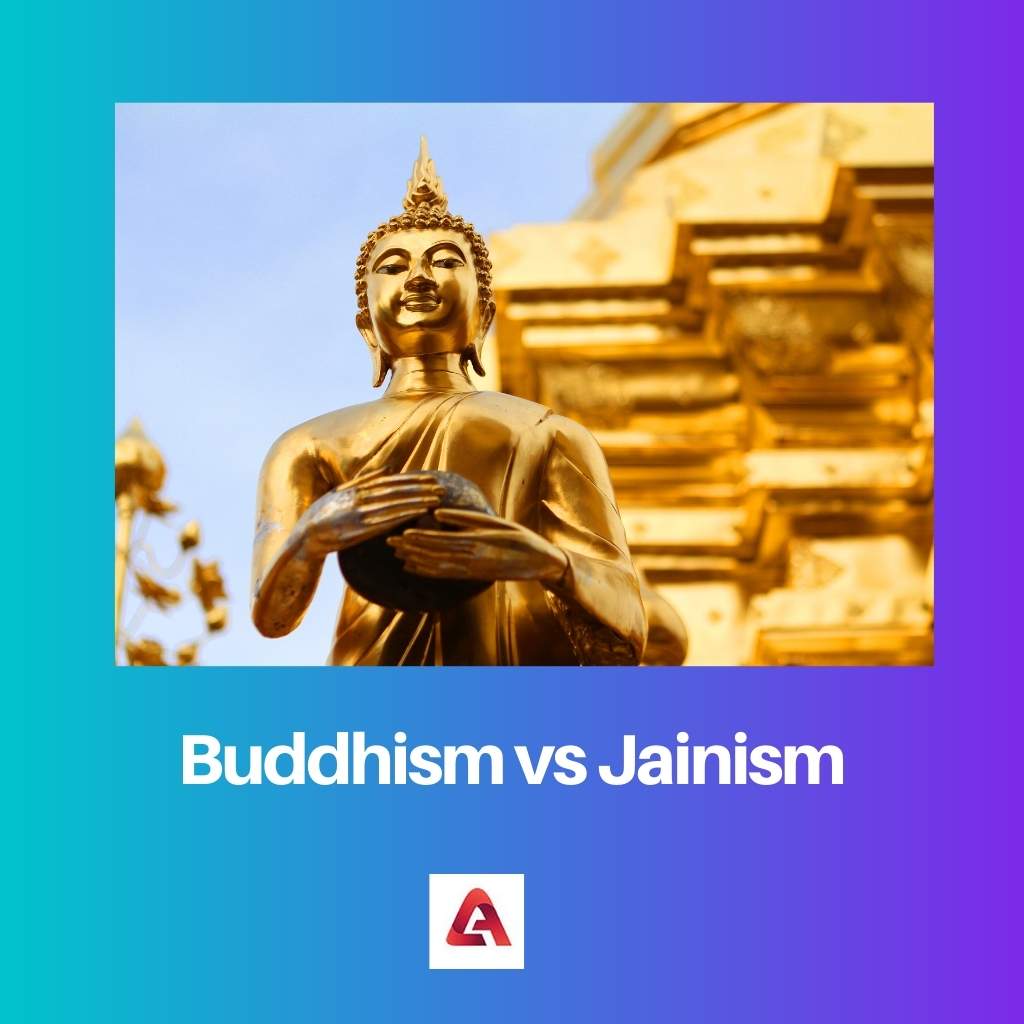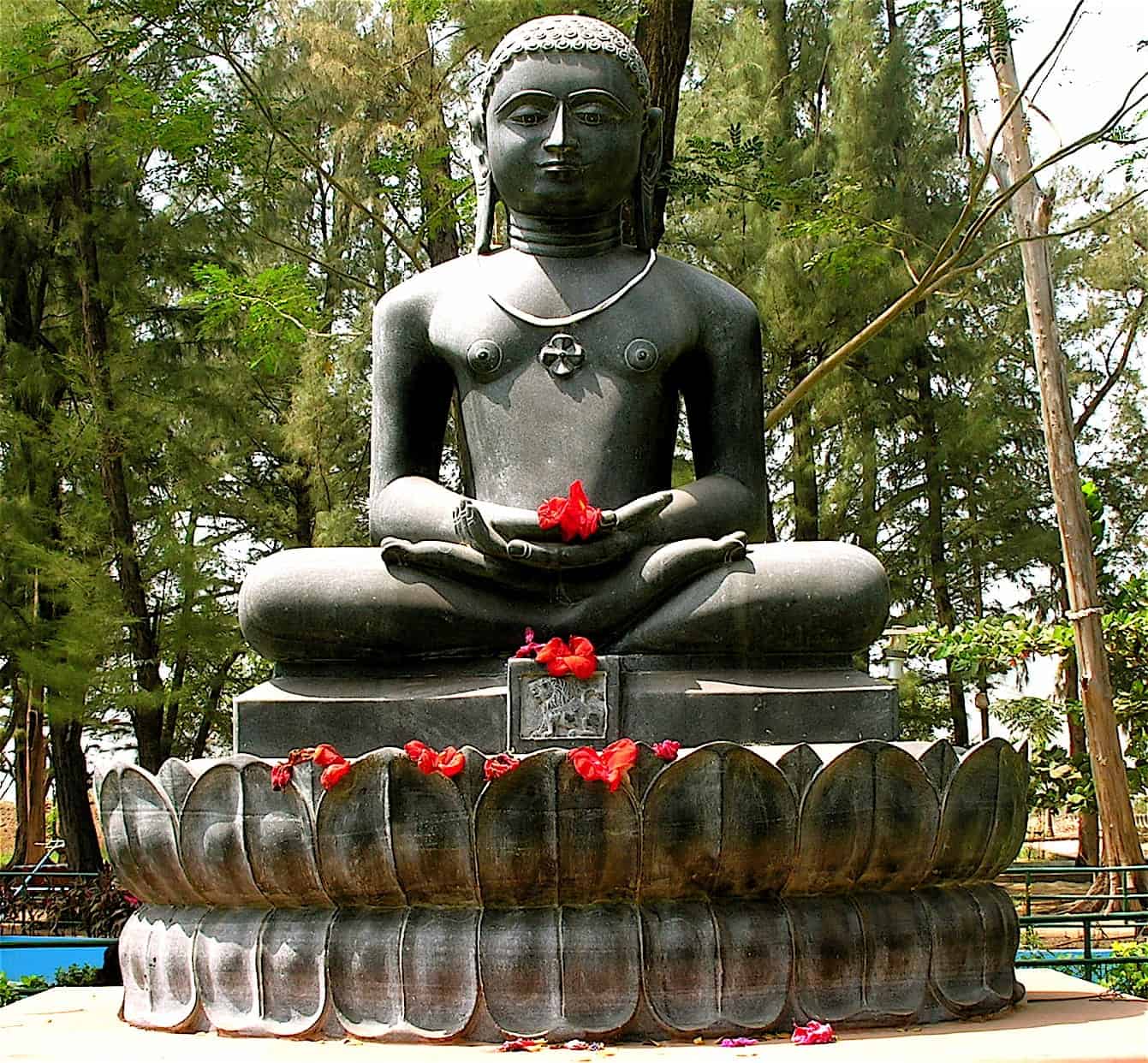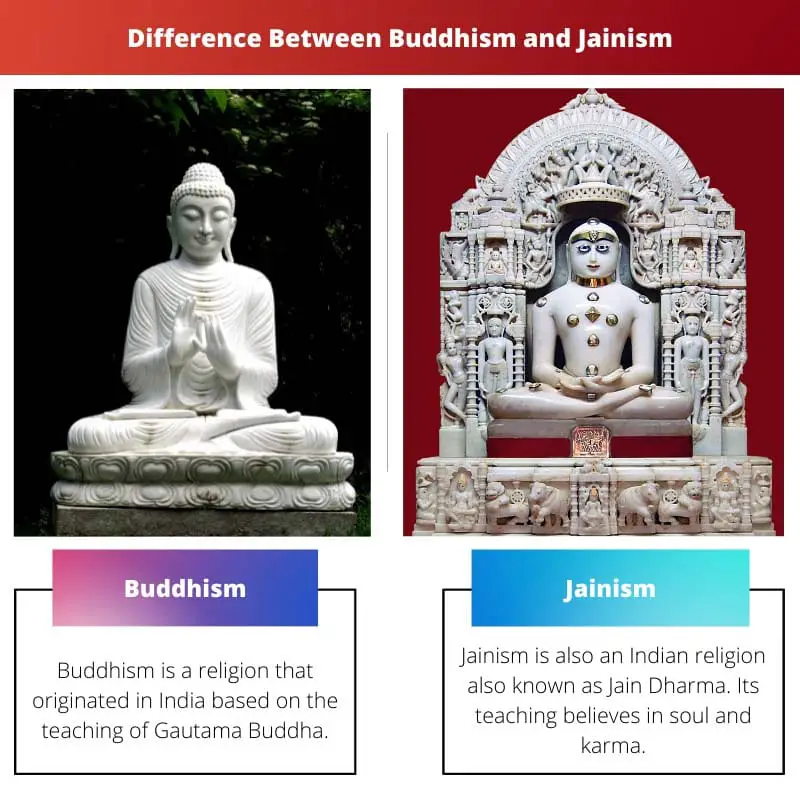There are many religions in the world that people follow and believe in. Humans make all religions, some of them are older, and their origin is not clear, while others are not less old in comparison, and their origins of them are very well known.
These religions form their livelihood base and influence their thinking and personality. And therefore, all religions play an important role in human life.
Examples of such religions can be Buddhism and Jainism. Both of them are not as old as some other religions, were found in similar years, and have several other similarities.
All of which can confuse a person not aware of them. The following differences will help in understanding both of these religions.
Key Takeaways
- Buddhism and Jainism both originated in ancient India and emphasized non-violence and compassion.
- Buddhism believes in the concept of the Four Noble Truths and the Eightfold Path, while Jainism emphasizes the concept of non-attachment and non-possession.
- Buddhism has more followers worldwide than Jainism.
Buddhism vs Jainism
The difference between Buddhism and Jainism is that both of them are founded by different people and have different beliefs. Buddhism does not believe in the soul, while Jainism belief in the soul. More prominence is given to sangha and monks in the case of Buddhism, whereas prominence is given to lay followers. Jainism is not spread in several countries as compared to Buddhism, which spread in many foreign countries. Lastly, more freedom is given to women in Jainism, while less liberty is given to women in Buddhism.

Buddhism is a religion that originated in India and is based on the teaching of Gautama Buddha. His teachings were influenced by the karma and rebirth of the living being.
All of these are based on a person’s good deeds during his lifetime and to make up for the bad deeds they have done in their life before.
Jainism is also an Indian religion also known as Jain Dharma. Its teaching believes in soul and karma. It teaches how a person is himself is responsible for his destiny, and salvation cannot be achieved by worshipping any god.
A person can only attain his soul by improving his karma and not harming anything on the earth; it also believes that life on earth can never come to an end.
Comparison Table
| Parameters of Comparison | Buddhism | Jainism |
|---|---|---|
| Soul Belief | Did not | Believed in soul |
| Prominence given | Sangha and monks | Lay followers. |
| Emphasised on | Liberal feelings and practical behaviours | extreme Ahimsa |
| Spread in | Various foreign land | Mainly in India |
| Women liberality | Less | More |
What is Buddhism?
Siddhartha Gautama founded it; he was a Kshatriya who led an extravagant life. But after the realization of suffering at the end of their life, he decided to give up all of his privileges. His teachings are comprised of four noble truths,
- First Truth: it identifies the presence of suffering.
- Second Truth: determination of the cause of the suffering.
- Third Truth: the end of the suffering in his earthly or spiritual life after achieving nirvana.
- Fourth Truth: attaining the end of suffering.
These truths can be achieved by being on the path of right understanding, right thought, right speech, right effort, etc., and it can also be divided into three parts:
- Good Moral Conduct: this includes thought, understanding, and speech.
- Meditation and Mental Development: this includes efforts, livelihood, and actions.
- Wisdom or Insight: this includes mindfulness and concentration.
It teaches beliefs in the following:
- Karma: it believes in karma, as it includes two types of deeds or actions, good or bad. Good actions include either the absence of bad actions or some other good acts towards others, for example, bringing happiness, generosity, righteousness, etc.
- The Cycle of Rebirth: this is also influenced by Karma; if the person has done good deeds or actions during his lifetime, he is more likely to be reborn into the fortunate realm, while the others who had done bad actions are born in a less fortunate realm.

What is Jainism?
The last saint of Jains is known to be Mahavira. The following are the main beliefs of this religion:
- Belief in Soul and Karma: this belief in soul and karma, the soul, can be released by doing good deeds or good karma by being a nice human being and nice to people and other living beings.
- Nirvana: This can be attained by doing the best karmas in life and avoiding any bad deeds that may affect any other human or living being.
- Non-Beliefs in God: he believes that everyone is responsible for their destiny through their karmas. He does not believe in God or worship the scriptures, or believe in any superstitions.
- Rejection of Vedas: his teaching rejects all the beliefs and teaching of Vedas, for example, sacrificial rituals of or by the Brahmins.
- Ahimsa: it gives importance to ahimsa according to which harm should be done to anyone, as by him, everything possesses life on earth.
- Freedom to Women: he believed that women should be given freedom and equal rights.
Other beliefs of this religion can be:
- Ahimsa: it means no injury to any living organism.
- Sunita: it means not to speak a lie.
- Artuja: it means one should not take anything he is not given.
- Aparigraha: it means the attachment is done to any worldly possessions.
- Brahmacharya: chasity.
The general conduct of this religion includes:
- Non-Violence:
- Truthfulness:
- Charity:
- Cultivating the right state of mind.
- Not touching intoxicants.
- Recitations of mantras.

Main Differences Between Buddhism and Jainism
- Both of them are based on the teaching of different personalities. Buddhism is based on the teachings of Gautama Buddha, while Jainism is based on the teaching of Tirthankaras. Gautama Buddha is the founder of Buddhism, while Vardhamana is the founder of Jainism.
- Jainism is a religion that believes in the soul that sticks to several types of non-living matter, whereas Buddhism does not believe in the soul. It is treated as an entity that changes.
- They also differ in terms of knowledge, Jainism emphasises on knowledge of liberation, whereas Buddhism emphasis on knowledge of the purpose of life.
- When compared in terms of liberality given to women, Jainism gives more freedom to women by providing them more equality, whereas Buddhism gives less emphasis in terms of liberality to women.
- Jainism is more limited to a few countries, India only, whereas Buddhism is spread to several other countries.



